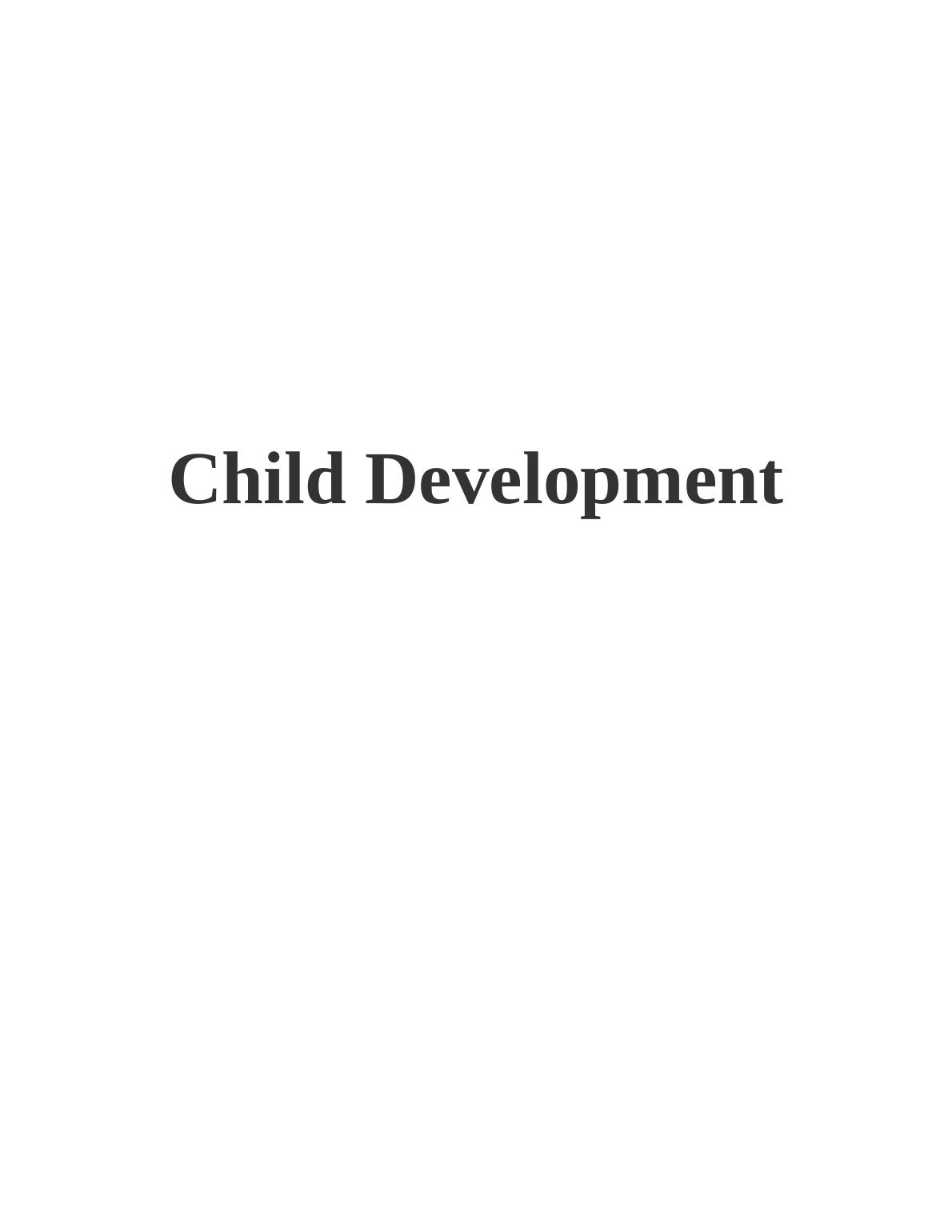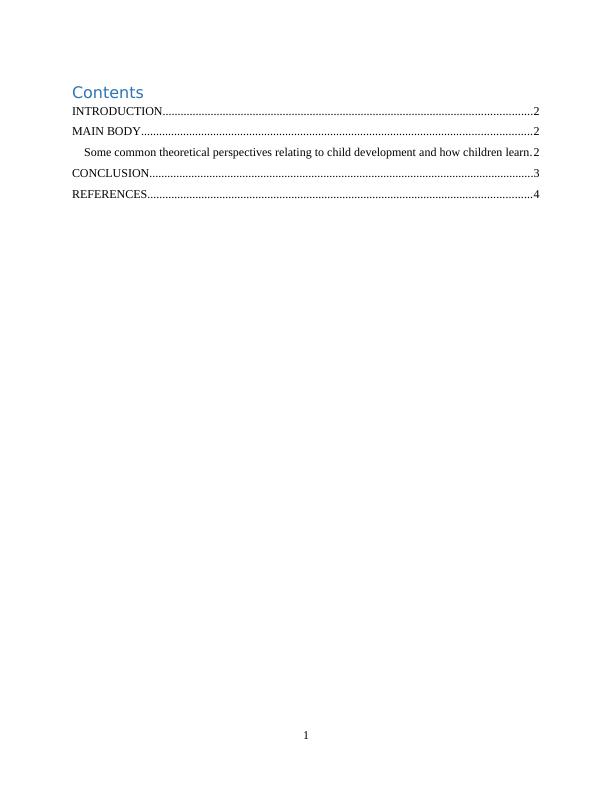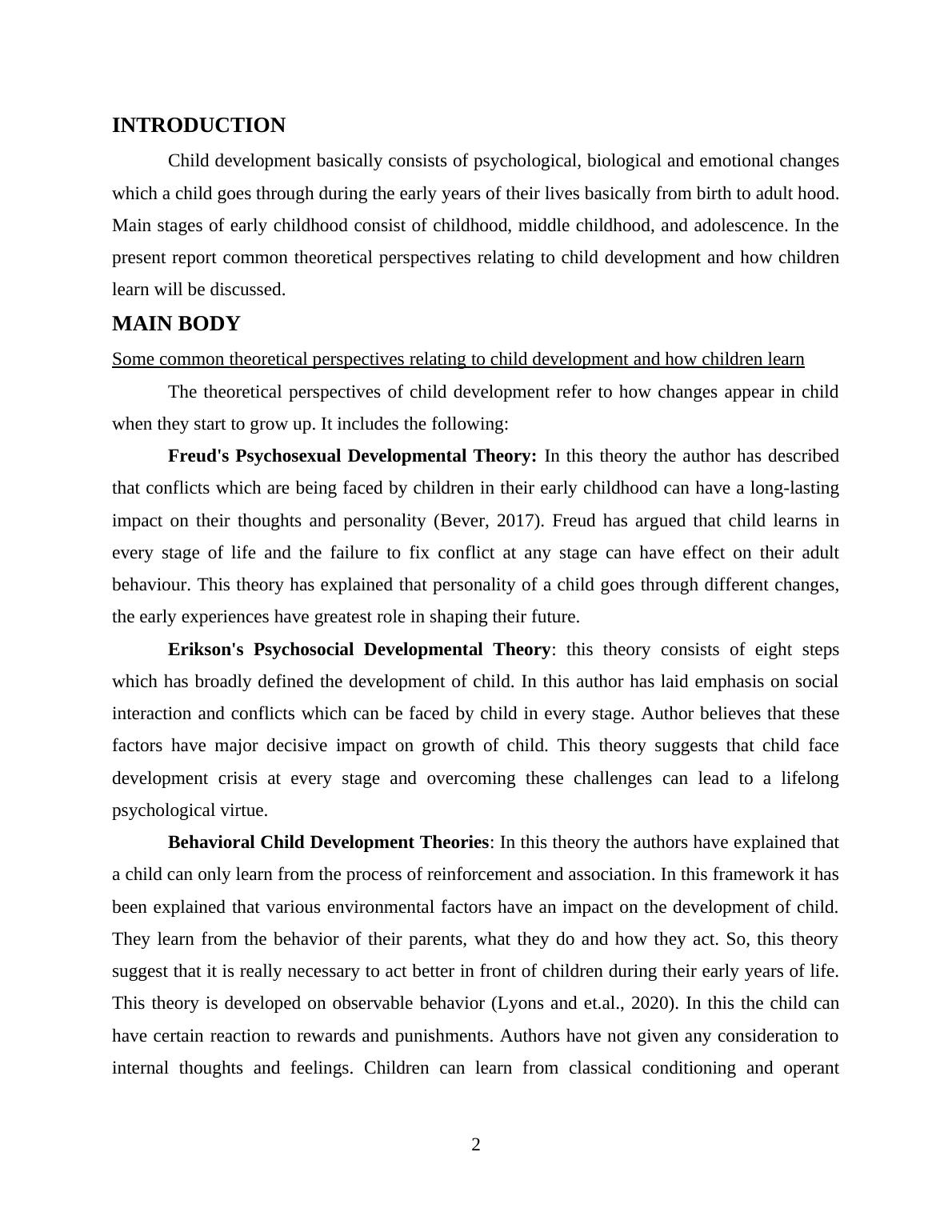Common Theoretical Perspectives on Child Development and Learning
Added on 2023-01-05
6 Pages630 Words85 Views
End of preview
Want to access all the pages? Upload your documents or become a member.
The Importance of Early Childhood Education Theory
|10
|2242
|24
Developmental Perspectives of Childhood: A Discussion on the Developmental Perspective
|20
|5707
|283
GROWTH AND DEVELOPMENT OF EARLY CHILDHOOD.
|10
|2843
|1
Theories of Childhood Development and Developmental Milestones in Children
|17
|4231
|38
Assignment on Learning Styles of Childhood Development
|6
|961
|13
Theoretical Concepts of Childhood and the Role of Family in Modern Society
|9
|3420
|460


